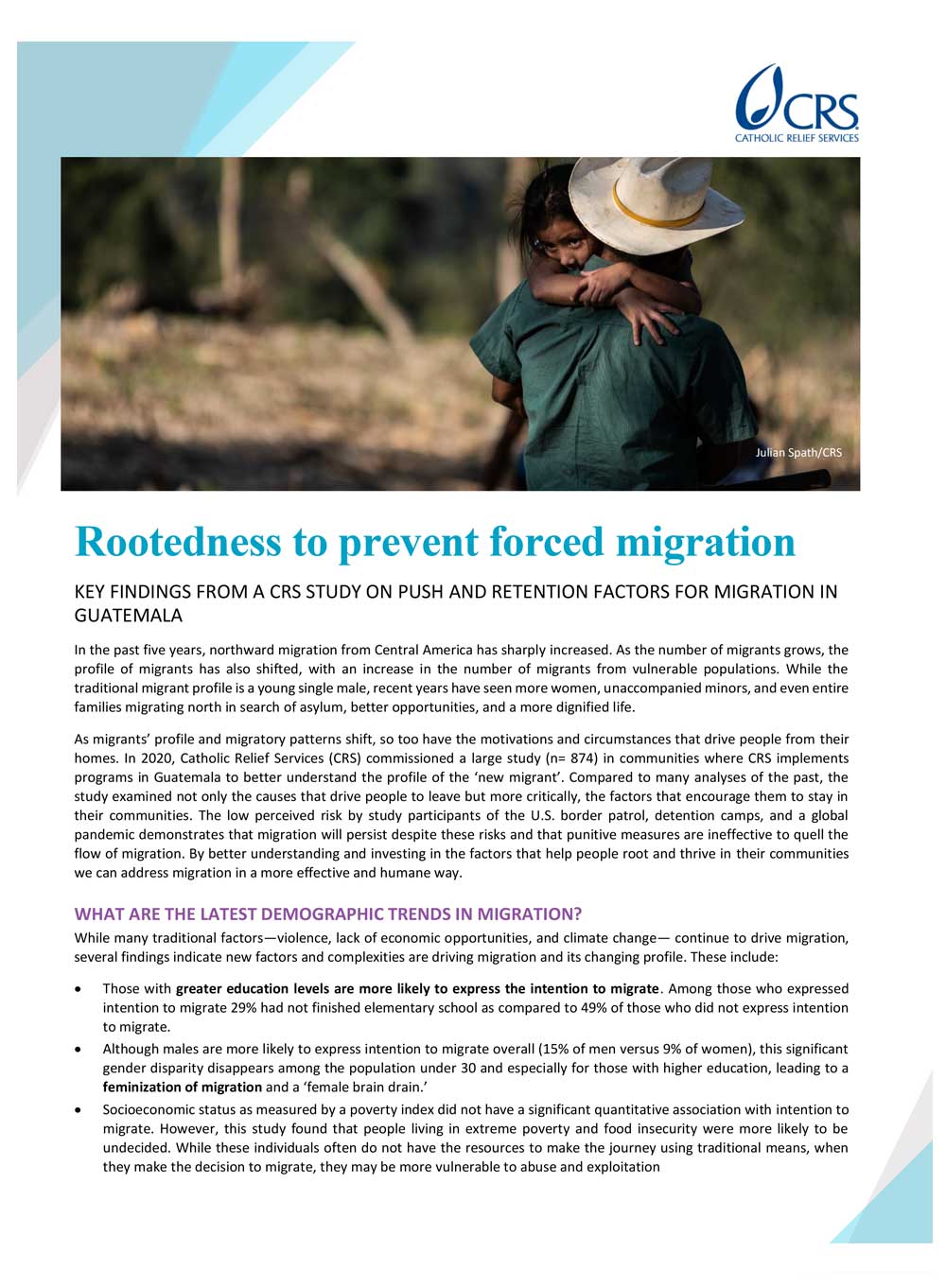
Policy Brief | Rootedness to prevent forced migration from Guatemala
Executive Summary
In the past years, migration from northern countries of Central America has increased sharply. In 2020, CRS conducted research on push and pull factors that impact irregular migration from Guatemala. The results give us opportunities to learn from past and ongoing development initiatives that address push factors and promote rootedness, or the opportunity and desire to live and thrive in one’s home community.
CRS makes the following recommendations to policy makers based on our findings:
- Develop a just and humane migration strategy. The U.S. administration should develop a strategy toward the northern countries of Central America (Guatemala, El Salvador, and Honduras) that prioritizes addressing the push factors of migration and promoting the rootedness factors. The strategy should also address the needs of the poorest and most vulnerable communities and prioritize robust consultation with local, national, and international stakeholders, including faith-based organizations.
- Increase humanitarian and development funding in the region for programs that address push factors and promote rootedness factors. Rather than focusing on deterring migration, Congress and the Administration should appropriate and allocate resources to build prosperous and safe communities where people can achieve a dignified life for themselves and their families.
- The U.S. Administration should request, and the U.S. Congress should provide supplemental resources for the international response to COVID-19. COVID-19 has exacerbated all the factors that push people to migrate and yet fear of catching the virus has not reduced migrant flows significantly.
- Focus development strategies on improving conditions for women and youth. In partnership with local organizations and large-scale development agencies like CRS, and in alignment with USAID country development cooperation strategies (CDCS), U.S. assistance should add youth and gender-sensitive components and outcomes to its primary programming.
- Support institutional partnerships that increase employment opportunities. Increase investment in job placement programs that broker connections between young people, vocational training, and stable job opportunities. Incorporating partnerships with the private and public sectors to provide a pipeline of stable employment is critical for helping youth remain in their home countries by creating prosperous and dignified careers.
- Promote community engagement/leadership as a tenet in all development programs. Funding should be allocated to local community leadership programs to increase community social capital. Additional funding should be allocated to promote greater community engagement and leadership for women and youth.
For more information, please contact: [email protected] or [email protected].


